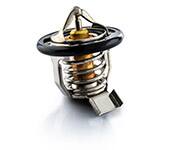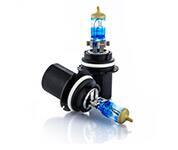Understanding Clomid: Drug Results and Effectiveness
Understanding Clomid: Drug Results and Effectiveness
Clomid, also known by its generic name clomiphene citrate, is a medication primarily used to treat infertility in women. It functions as a selective estrogen receptor modulator (SERM) and is often prescribed to stimulate ovulation. In this article, we will explore the Clomid drug result and its effectiveness in achieving pregnancy.
How Clomid Works
Clomid works by blocking estrogen receptors in the hypothalamus, which in turn stimulates the release of hormones that promote ovulation. This action can lead to increased chances of conception, especially in women with irregular menstrual cycles or polycystic ovary syndrome (PCOS).
Expected Outcomes of Clomid Treatment
The Clomid drug result can vary based on several factors, including the underlying cause of infertility, the woman’s age, and overall health. Here are some common outcomes:
- Increased Ovulation Rates: Many women experience improved ovulation rates after using Clomid.
- Higher Pregnancy Rates: Studies show that approximately 30-40% of women may conceive within the first three cycles of treatment.
- Multiple Pregnancies: There is an increased risk of twins or higher-order multiples when taking Clomid.
Success Rates of Clomid
The clomid-buy success rates for Clomid can be quite promising. Here’s a breakdown of some statistics:
- Women under 35 have a higher success rate, averaging around 40% per cycle.
- For women aged 35-39, the success rate drops to about 20-30% per cycle.
- Overall, Clomid is effective for about 80% of women who use it within six cycles.
Factors Influencing Clomid Success
Clomid drug result:
- Age: Younger women tend to respond better to treatment.
- Weight: Maintaining a healthy weight can enhance the effectiveness of Clomid.
- Underlying Conditions: Conditions like PCOS or thyroid disorders can impact outcomes.
Potential Side Effects
While Clomid is generally well-tolerated, some women may experience side effects, including:
- Hot flashes
- Mood swings
- Abdominal discomfort
- Visual disturbances
Frequently Asked Questions (FAQs)
1. How long does it take to see results from Clomid?
Results can typically be seen within the first few cycles, but it may take up to six cycles to achieve a successful pregnancy.
2. Can Clomid be taken during pregnancy?
No, Clomid should not be taken once pregnancy is confirmed. It is only intended for inducing ovulation.
3. What should I do if Clomid fails to work?
If Clomid is unsuccessful after six months, consult a healthcare provider for alternative fertility treatments.
Conclusion
The Clomid drug result can provide hope for many women facing infertility challenges. Understanding how it works, its success rates, and potential side effects is crucial for making informed decisions about treatment options. Always discuss any concerns or questions with a healthcare professional to tailor the approach to individual needs.


























